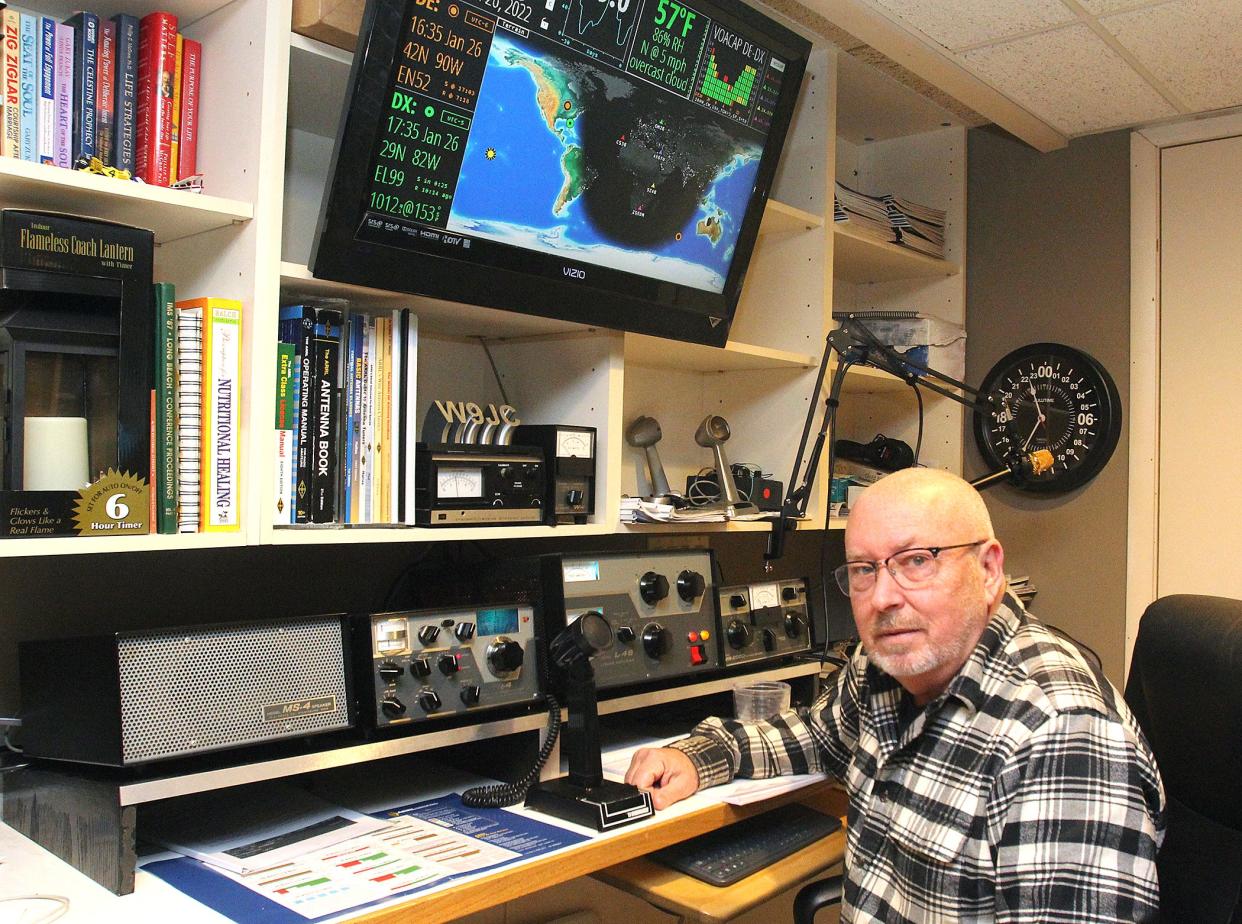Freeport ham radio operator gets thrill from being part of airwaves

FREEPORT — On any given day, John Mitchell sits in front of his amateur ham radio set up in his home, stares up at a video screen showing all the places where he could have a conversation with someone and wonders what the world has in store for him.
Mitchell is a ham radio operator who loves sharing his love for radio, something he learned as a teen after he grew out of walkie-talkies.
He used a ham radio for the first time when he was 14 and has been fascinated ever since with the technology that dates back more than 100 years.
People use ham radio to talk across town around the world and even into space, all without the internet or cell phones.
More: Two renovation projects slated for Freeport Public Library in 2022
“Explaining ham radio is tough because it’s so broad, today more than ever ... lots of computer-based digital modes, modes of radio that are also linked to the internet, satellite communications,” Mitchell said.
Amateur radio is many things to many people, Mitchell said. It’s a hobby, a sport and a service.
“I am a hobbyist," Mitchell said. "I just love radio and am fascinated by it. Others compete for awards and accreditation, while others involve themselves in community service, emergency communications services, disaster relief and coordination.”
It was amateur radio operators who proved to the world more than 100 years ago that people could communicate with others across the Atlantic Ocean using radio. Amateurs built the radios, sent people and their radios to Europe to receive the signals coming from America, and made it happen.
“Think about that little cell phone you carry around which is only a radio,” he said. “That all happened in the last 100 years. That’s one lifespan for many people.”
Mitchell said radio technology today was born from the advent of amateur radio, and like him, he still stays connected to ham radio to be part of history, to be part of advanced technology and to have the ability to connect with a stranger across the world
“To be a ham operator, you have to earn your keep,” he said. “You have to educate yourself, take a test and obtain a license,” he said. “There is a huge responsibility that comes with being part of amateur radio.”
In the beginning and during our nation's major wars, operators had to know Morse Code, Mitchell said. It takes effort, he added, but it's a skill worth knowing.
“This is more than a hobby,” he said. “It’s a technological way to be part of the spectrum of the airwaves.”
Local ham operators are often called upon to help out with disaster relief. It is often used to help out law enforcement, military and act as weather spotter communication.
“I have a call sign, and it is a thrill to hear my call sign read back to me when I reach someone,” he said.
Mitchell is part of the Stateline Amateur Radio Club, which is hosting a radio license exam session at 12:30 p.m. Feb. 5 at Freeport Public Library.
Attendees will be able to test for a license or learn more about amateur radio. The cost for the exam session is $15.
The exam is for prospective operators or current operators looking to upgrade to a higher class of a license. For more information visit Stateline Amateur Radio Club on Facebook.
Jane Lethlean is a freelance correspondent.
This article originally appeared on Journal Standard: Freeport ham radio operator gets a thrill from being part of airwaves

